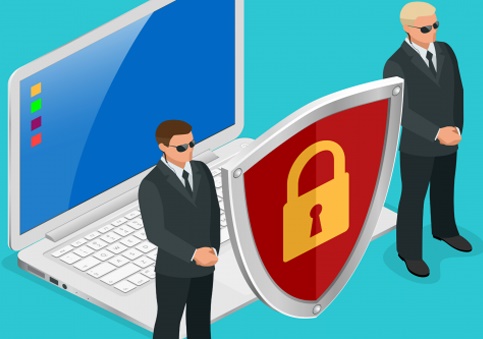Endpoint Security: Protecting Your Digital Doors, What it is? Why it is Important

In today’s digital world, where data is king and cyber threats are ever-present, endpoint security has become an essential layer of defense for businesses and individuals alike. But what exactly is endpoint security, and why is it so important?
What is Endpoint Security?
Endpoint security is a comprehensive approach to protecting the devices that connect to your network, such as desktops, laptops, tablets, smartphones, and servers. These devices are often referred to as “endpoints” and act as entry points for cybercriminals to gain access to your sensitive data.
What’s Considered an Endpoint?
In the context of endpoint security, an endpoint refers to any device that connects to your network and can potentially be exploited by cybercriminals. This includes:
- Desktops and laptops: These are the most common endpoints and are vulnerable to malware, phishing attacks, and other threats.
- Mobile devices: Smartphones and tablets are increasingly being used for work and personal purposes, making them prime targets for cyberattacks.
- Servers: Servers store and manage critical data, making them a high-value target for cybercriminals.
- Internet of Things (IoT) devices: Smart TVs, wearables, and other IoT devices can be vulnerable to attack and used to gain access to your network.
Why Endpoint Security is Important?
Endpoint security is crucial for several reasons:
- Protects your data: Cybercriminals are constantly developing new ways to steal data, and endpoint security helps to prevent them from accessing your sensitive information.
- Reduces the risk of downtime: Cyberattacks can disrupt your business operations and cause significant downtime. Endpoint security helps to prevent these attacks and ensure that your systems are up and running.
- Protects your reputation: A cyberattack can damage your reputation and erode trust with your customers and partners. Endpoint security helps to protect your brand and maintain your good standing.
How Endpoint Protection Works
Endpoint protection solutions employ a variety of technologies and techniques to safeguard your endpoints from cyber threats. These include:
- Anti-malware: This software detects and removes malicious programs from your devices.
- Antivirus: This software protects your devices from viruses, which are a type of malware.
- Application control: This software allows you to control which applications can be installed and run on your devices.
- Data loss prevention (DLP): This software helps to prevent sensitive data from being leaked or lost.
- Endpoint detection and response (EDR): This software helps to detect and respond to cyberattacks in real-time.
- Patch management: This software helps to ensure that your devices are up to date with the latest security patches.
Endpoint Protection Software vs. Antivirus Software
While both endpoint protection software and antivirus software offer protection against cyber threats, there are some key differences between the two:
- Scope: Endpoint protection software provides a broader range of protection than antivirus software. It covers a wider range of threats and vulnerabilities, including malware, ransomware, phishing attacks, and data leaks.
- Features: Endpoint protection software typically includes a wider range of features than antivirus software, such as application control, DLP, EDR, and patch management.
- Cost: Endpoint protection software is generally more expensive than antivirus software.
Core Functionality of an Endpoint Protection Solution
A robust endpoint protection solution should offer the following core functionalities:
- Real-time protection: It should constantly monitor your devices for malicious activity and take action to block threats before they can cause harm.
- Multi-layered protection: It should employ various technologies and techniques to protect against a wide range of threats.
- Threat intelligence: It should leverage threat intelligence databases to stay ahead of the latest cyber threats.
- Centralized management: It should allow you to manage your endpoint security from a central console.
- Reporting: It should provide you with detailed reports on the threats that your devices have been exposed to and the actions that have been taken to mitigate them.
Endpoint security is essential for protecting your devices, data, and reputation from the ever-evolving threat landscape. By implementing a comprehensive endpoint protection solution, you can significantly reduce your risk of cyberattacks and keep your business safe.








